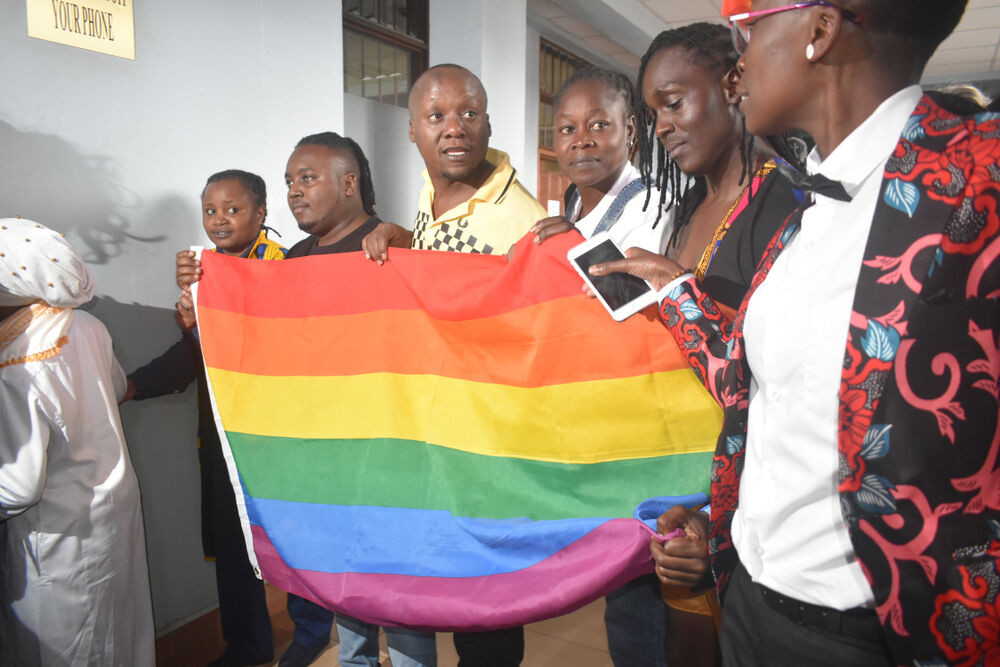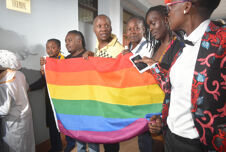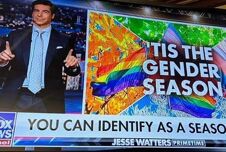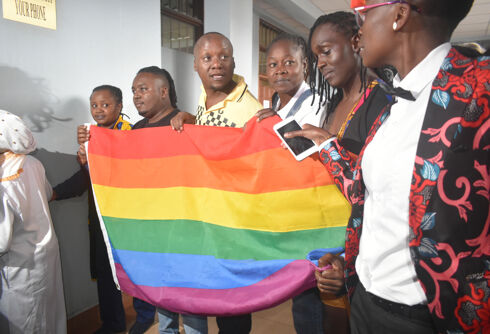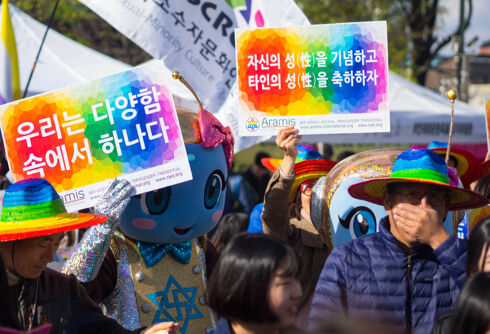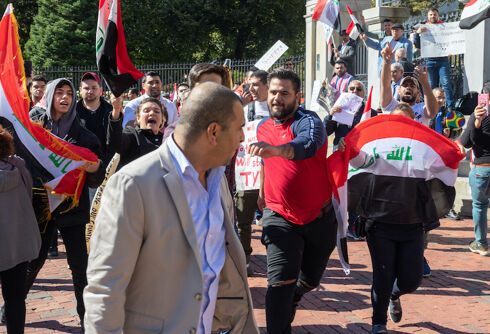An advocacy group in Kenya is suing the police chief in the city of Mombasa as well as other officials and organizations over their role in multiple violent anti-LGBTQ+ protests this year.
Last month, Kenya’s Supreme Court affirmed a February decision granting an LGBTQ+ rights group official status and legal recognition as a non-governmental organization (NGO). The granting of the status sparked protests in the country’s second-largest city led by clerics and homophobic politicians.
Related:
Pope Francis suggests Church can bless same-sex unions in “enormous advance” for LGBTQ+ Catholics
He come out in support of marriage equality, but advocates hailed it as an advance.
The lawsuit against city officials describes that demonstration, and another in March after the initial Supreme Court ruling, as gross human rights violations against the LGBTQ+ community, The Washington Blade reports.
Global perspectives delivered right to your inbox
Our newsletter bridges borders to bring you LGBTQ+ news from around the world.
According to the suit, the local government-sanctioned protests have led to increased cases of homophobia and threats to the lives of the queer community across the country.
The suit — filed by Kenya’s Center for Minority Rights and Strategic Litigation and an unnamed plaintiff — targets Mombasa Police Inspector General Japhet Koome for allowing religious leaders and lobbying organizations to hold homophobic protests whenever court rulings favor the LGBTQ+ community. The suit demands a “ban on anti-LGBTQ protests in the country.”
The Kenyan Constitution recognizes consensual opposite-sex relations only. Section 162 of the country’s penal code criminalizes consensual same-sex sexual relations.
In addition to the police official who authorized the street marches by issuing permits to protesters, the suit names two anti-LGBTQ activists and a national lobby group known as the “Anti-LGBTQ Movement” for their role in organizing the demonstrations.
The plaintiffs assert the “Anti-LGBTQ Movement” has been propagating “violence, elimination, and expulsion” of the queer community from Kenya in a relentless homophobic campaign.
The suit also alleges advocacy organizations have recorded “more than 100 cases of violence, forced evictions, and denial of services” to queer people by landlords, employers, and the public as a result of the demonstrations, as well as the closure of “more than 20 organizations and medical facilities” that provide HIV and STI treatment services.
The two petitioners also named interested parties in the case, including the state-funded National Cohesion and Integration Commission, Amnesty International Kenya, and the Kenya Human Rights Commission.
In September, a coalition of six advocacy groups cheered the Supreme Court’s rulings as a “crucial shot in the arm towards LGBTQ rights,” and condemned protest organizers for “mobilizing towards hatred and marginalizing others.”
“We extend this reminder once again that the culture of hate has divided nations and left gaping wounds, while countries that have learnt to embrace their diversity thrive in every facet,” the group, led by the Initiative for Equality and Non-Discrimination, wrote in a statement.
“Rather than demonstrate against certain sections of the population, how about we dedicate that energy to understanding those that you see as ‘different’, while focusing more on solving the real enemies of our nation: poverty, unemployment, poor health facilities, hunger, and despondency?”


